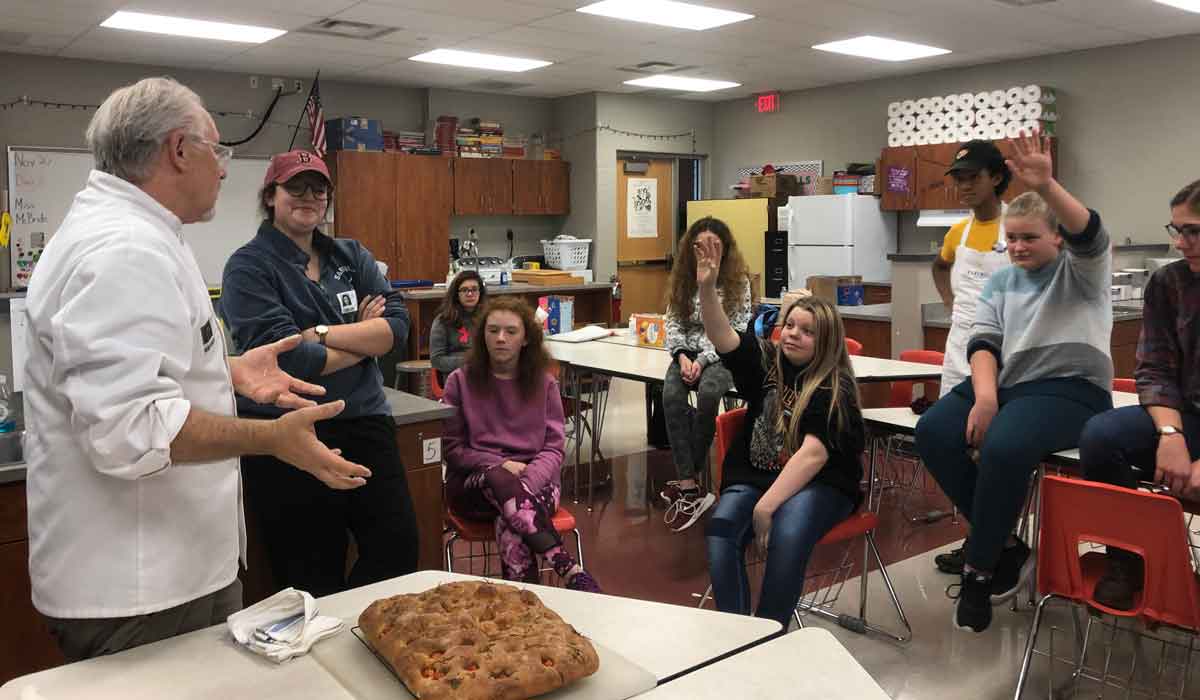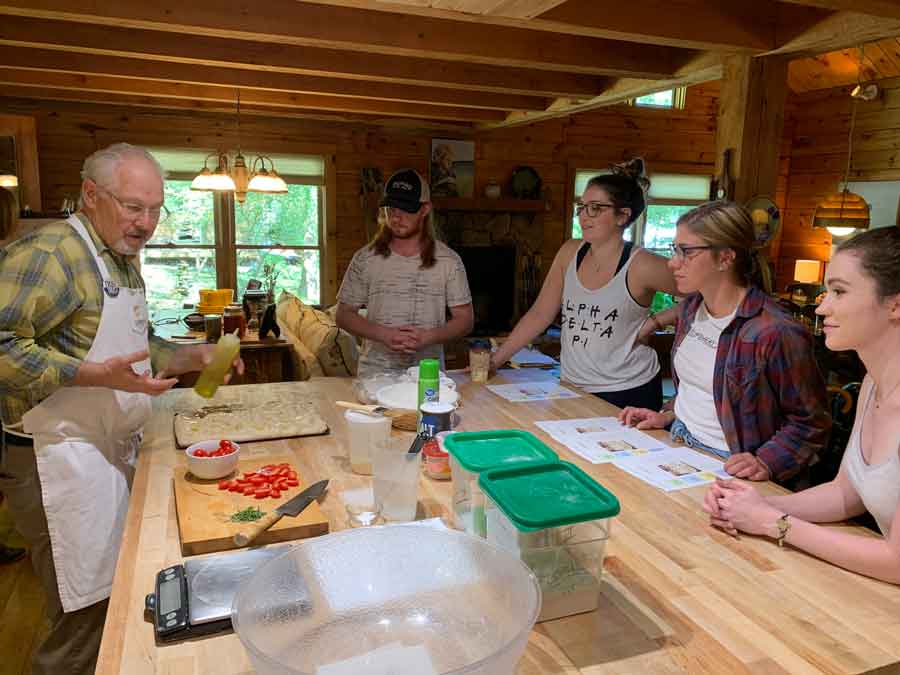

Bread is a universal touchpoint—a staple food across the globe. As individuals worldwide gather to make and break bread, their bodies find nourishment. And in many cases, this simple food, made primarily of flour, yeast, salt, and water, also offers the emotional nourishment of comfort and community.
Last fall, students in psychology Prof. Nathalie Goubet’s class, Coping with Adversity: Resilience in Childhood, built upon these premises of bread making and bread breaking in an innovative way. With the help of a Community-Based Learning Fellowship through the Center of Public Service and funding from the Andrew W. Mellon Foundation, they designed a hands-on workshop that aimed to teach Gettysburg Area Middle School students resilience-building skills.
“It may sound like a bizarre idea, but we used some of the bread making processes such as fermentation, dough resting, cooling, and elasticity of the dough as metaphors for skills needed for resilience, including emotional regulation, feelings of competence, problem solving, flexibility of mind, exposure to failure, support networks, perseverance, and cooling off in heated situations,” Goubet said.
This bread-centric, community-based learning project was one part of a larger, five-week resilience-building workshop series that psychology and organization and management studies double major Tyler Keohan ’20 engineered in her independent study with Goubet. However, the idea for the bread making workshop in particular —What if Making Bread Could Teach You About Life?—was a brainchild of Goubet and drew interest from local baker Marc Jalbert, who is Founding Executive Director of Bakewell Farm in Biglerville, PA.
Jalbert founded Bakewell Farms in 2016 with a vision for using bread making as a way to build community. In addition to partnering with Goubet’s class for the workshop, he pursued this initiative through Ruth’s Harvest, which provides healthy meals and snacks to food-insecure children in the Gettysburg Area School District and the Community Baker Program that teaches individuals how to bake a basic loaf and encourages them to share one with someone else.
Preparing for the workshop, the psychology class learned how to make focaccia, a flat Italian bread. After their hands kneaded and baked the dough to delicacy, they began brainstorming ways to bridge the theoretical to the practical with metaphors and developed various activities to help the middle schoolers draw connections between bread making and resiliency.

These activities included relating the “shaggy mass”—a baking term that describes when the dough looks loose and formless—to complex emotions and thoughts, demonstrating the relationship between flexibility of the dough and flexibility of the mind, and sharing ways to cool off in heated situations as they waited for the bread to cool off to eat.
“When you are able to connect the literature you read in class and the concepts you learned about to real, practical purposes, like we did, it takes learning to a whole new level and brings everything home,” said psychology major and education minor Bethany Wiczalkowski ’20, who wants to be a school guidance counselor one day. “Helping school-aged children begin to draw those same connections showed me that, yes, I actually can apply this knowledge to real life, and I can help people build valuable resiliency skills, even with something as simple as bread.”
While the middle school students who participated in the bread making workshop had prior lessons about emotional regulation, empathy, and other concepts parallel to resilience, they collectively radiated an enthusiasm for its ingenuity, which Goubet and her class deemed a success. So much so that Goubet hopes to maintain the partnership with the middle school in the future and give more students an outlet to build life-long skills through bread making and other similar mentoring activities.
“A lot of resiliency-based literature debates whether or not teaching resilience before you get into a situation that is adverse, can help people react and cope in the best way possible,” Keohan said. “I think exploring that was one of our goals for the workshop—equipping students with the skills they need to successfully cope before they’re in situations where they actually need to. I really hope the middle schoolers take away that there are constructive ways to cope when things go wrong, and that there are always people and resources who are willing to help.”
Learn more about community-based learning at Gettysburg College.
By Molly Foster
Photos courtesy of Nathalie Goubet
Posted: 07/08/20


